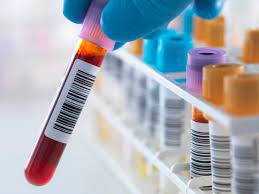Normal bone biochemistry levels

- Calcium (Ca) = 2.2-2.6 mmol/L – below 1.8 or above 3.0 needs treatment; below 1.4 or above 3.5 needs treatment today. It is the primary mineral in bones and is crucial for bone health. About 99% of your body’s calcium is in your bones and teeth. The other 1% of it is in your blood
- Albumin (alb) = 35-50 g/L – a protein that plays a role in calcium binding, so low levels can affect calcium levels
- Phosphate (PO4) = 0.8-1.4 mmol/L – also essential for bone structure and works in conjunction with calcium
- Alkaline phosphatase (alk phos, ALP) = 30-130 U/L – an enzyme that indicates bone formation activity, with elevated levels potentially signifying increased bone turnover
- Magnesium (Mg) = 0.7–1.0 mmol/L
- Parathyroid hormone (PTH) <5 pcmol/L – a hormone that is made by the 4 parathyroid glands (at the back of the thyroid gland in the neck). It controls calcium and phosphate levels in the bones and blood
- Vitamin D (vit D) >50 nmol/L – works with PTH.
Other resource
Bone biochemistry interpretation


